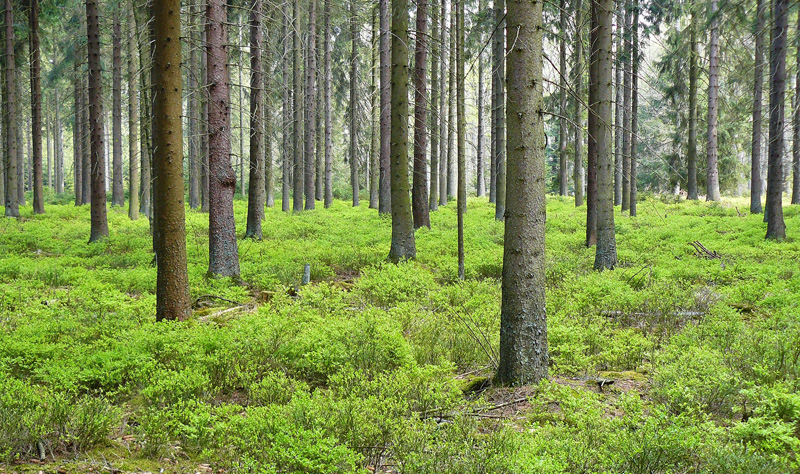COP21 climate negotiations: Sustainable bioeconomy deserves green light
Finland is strongly promoting the carbon neutral status of Finnish biomass. In our country, forest (carbons sinks) are not under threat: due to sustainable forest management, they are growing every year in volume. Annual growth is two times more than annual loggings.
The Confederation of Finnish Industries (EK) is hosting a side event in Paris Dec 1st on Nordic forestry and carbon sinks. The purpose of the event is to explain why the use of Finnish and Swedish biomass is sustainable and therefore, carbon neutral.
Forests threatened in many parts of the world
Forests are essential for the climate, as they bind harmful carbon dioxide emissions i.e. act as so called carbon sinks. In many countries in the world, carbon sinks are severely threatened, due to overdeployment of forests.
In order to control climate change, climate negotiations will discuss measures on how to slow down and stop the decrease in global carbon sinks (forests).
Already before Paris, an agreement has been achieved on the so called REDD+ mechanism (Reduced Emissions from Deforestation and Forest Degradation, Conservation of Existing Forest Carbon Stocks, Sustainable Forest Management and Enhancement of Forest Carbon Stocks).
In the REDD+ mechanism, developing countries can receive compensation for lowering the emissions of their forest sectors. The tools that can be used include, for example, projects for stopping deforestation and for planting new forests.
The volume of Finnish carbon sinks is growing
In a country like Finland, where forests are abundant, carbon sinks are not under threat. Even if the forest surface area is marginally decreasing, due to sustainable forest management the volume of growing stock is measured and proven to grow continuously, underlines Mikael Ohlström, Chief Policy Advisor at the Confederation of Finnish Industries (EK):
–The ability of our forests to bind emissions is constantly growing. It is thus important for us to be able to use the forest resources within sustainable limits both as raw material and for energy production. This is vital, since Finland is largely depending on bioeconomy. Using biomass for energy production is also a fundamental requirement that enables Finland to reduce the use of fossil fuels and to meet the EU climate and renewable energy targets.
For these reasons Finland has following targets in climate negotiations:
1) Using biomass to produce energy needs to maintain the status of carbon neutral energy, which it clearly is in Finland.
2) Changes in carbon sinks (decrease or increase in forests) should not be calculated based on forest surface area starting from 2020, but instead based on actual growing stock i.e. volume. According to the current rules the constantly growing Finnish carbon sinks (forests) need to be reported to the United Nations as a source of emissions. These “emissions” need to be compensated, for example by buying emission allowances.
Biomass based process industry and energy production require exceptionally heavy investments where companies need to commit to for decades to come, Mikael Ohlström points out:
– Not having clear rules on the carbon neutrality of biomass and the calculation methods for carbon sinks are apt examples of how climate policy choices can have an impact on investments and their profitability.
According to Ohlström, the stability and consistency of the investment environment should be increased by all possible means, by making predictable and long-term policy decisions, without a threat that there will be significant changes in the rules later on.
Presentations of our COP21 event Dec 1st:
Forests and climate change mitigation in the Finnish context (Presentation)
Heikki Granholm, Director
Ministry of Agriculture and Forestry, Finland
Forests and climate change mitigation in the Swedish context (Presentation)
Björn Boström, Senior Policy Adviser
Swedish Environmental Protection Agency
Carbon Neutrality in Bio-economy (presentation)
Ahti Fagerblom, Manager
Energy and Climate Policy, Finnish Forest Industry
Bioenergy, by far the biggest renewable (presentation)
Joona Turtiainen, Senior Adviser, Energy and
